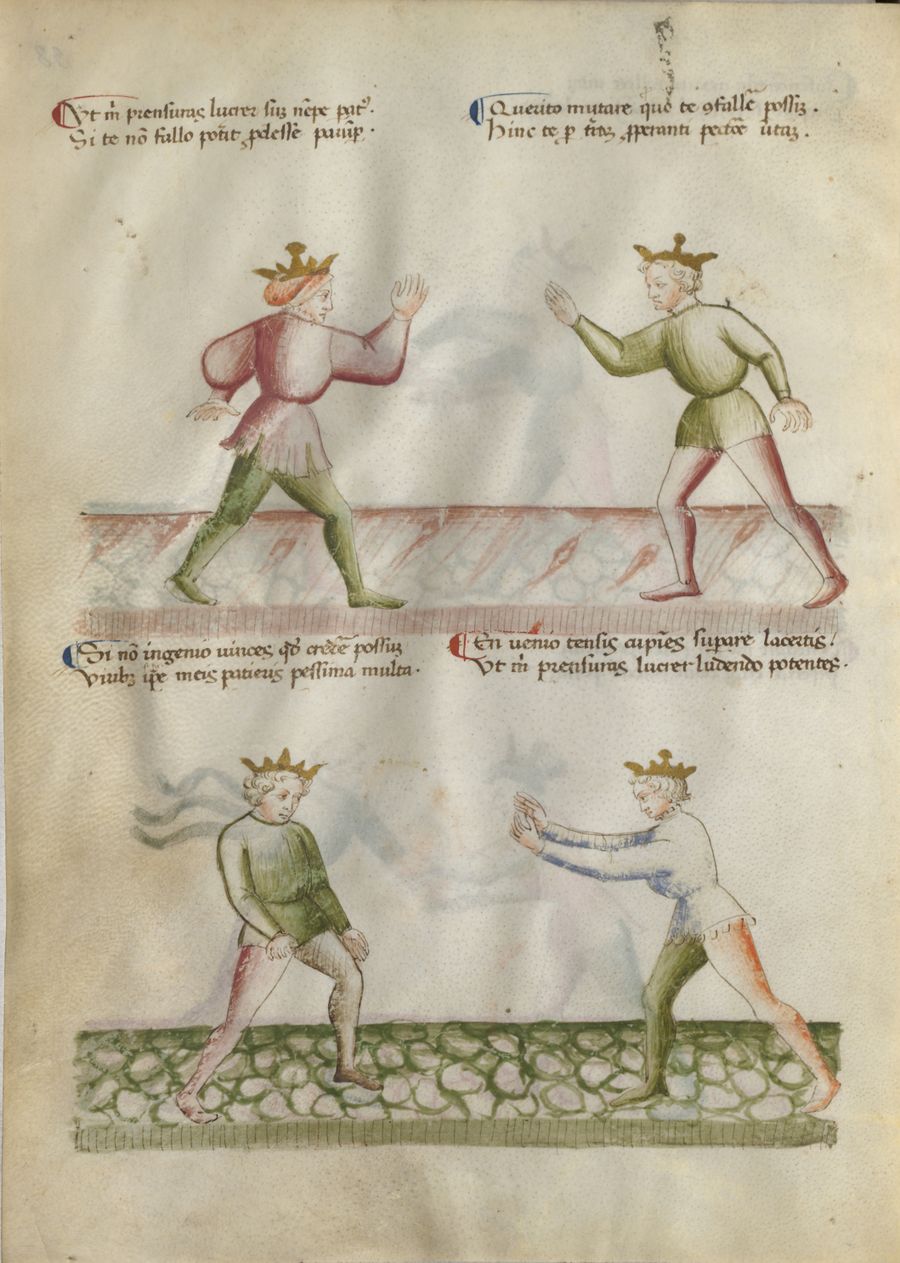|
|
You are not currently logged in. Are you accessing the unsecure (http) portal? Click here to switch to the secure portal. |
User:Kendra Brown/Florius/English MS Latin 11269 38v
Latin 38v
¶ Vt mihi prensuras lucrer, sum nempe paratus.
Si te non fallo poterit prodesse parumper.
- ¶ Querito mutare[1] quo te confallere possim.
Hinc te per terram properanti pectore vertam.
¶ Si non ingenio vinces quidem credere possum
viribus ipse[2] meis patieris pessima multa.
- ¶ En venio tensis cupiens superare lacertis.[3]
Ut mihi prensuras lucrer ludendo potentes.
Italian
|
I am prepared to gain the holds; |
[4a-a] Per guadagnar le prese e son aparichiato, |
|
I seek to make a change to the fight, |
[4a-b] De pugna mutacion cercho de'fare |
|
If you don't defeat me with cunning, I believe |
[4a-c] Se per inçegno non me vinceraii zo creço |
|
I come with my arms well-extended like this |
[4a-d] Cum li braci vegno acusi ben destese |
English 38v
✅¶ I am certainly prepared that I, myself, gain the grasps.[4]
This will be beneficial for a short time, if I don't deceive you
✅¶ I seek to shift to a place[5] from which I would be able to deceive you completely.
From here, I will, by hastening, turn you by the chest through the ground.
✅¶ If you will not succeed with a clever trick, I can indeed believe
[that] you yourself will suffer much the worse[6] due to my strength.
✅¶ Behold, I come, seeking to overcome [you] with extended arms;
In order that I, myself, gain powerful grasps through wrestling play.
- ↑ Added later: "pro".
- ↑ Added later: "scilicet tu".
- ↑ It looks like the period maybe was changed to a slash/comma.
- ↑ This line and the last line of the 4th couplet share an identical fragment in both the Latin and the Italian; however, it is not possible to render the two identically in fluent English.
- ↑ 'muto' can mean simply to change/shift, or to change/shift to/from a location. Due to 'hinc' in the following line, a change of location seemed apt.
- ↑ Although 'multa pessima' are plural in Latin, much is singular in English. English also uses a comparative where Latin uses a superlative.

